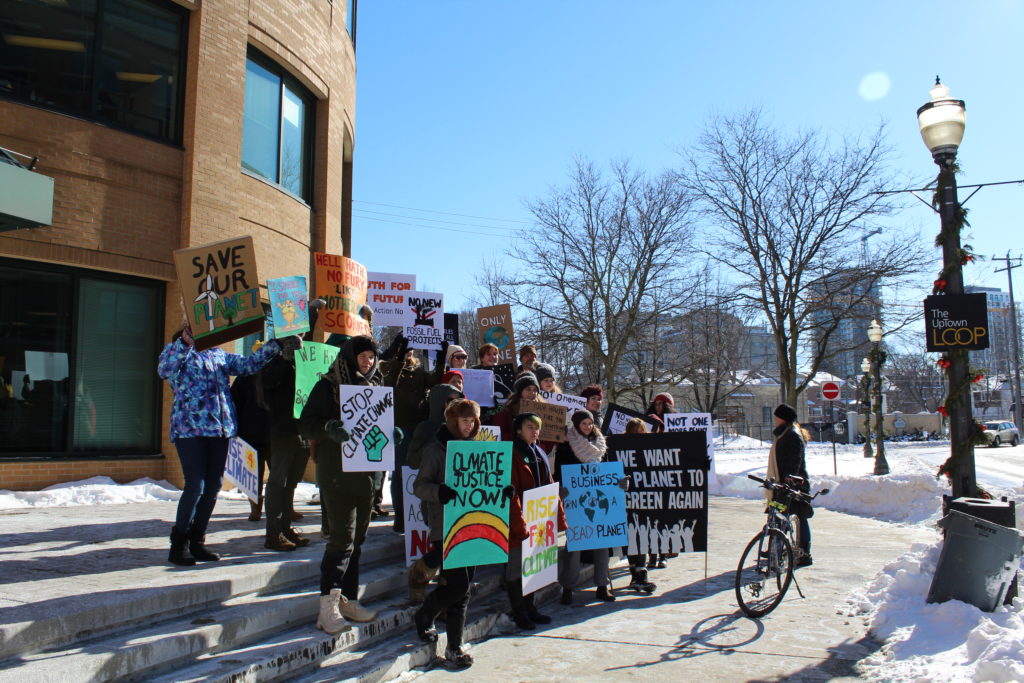By Petra Duff and Yonatan Strauch

On Sept. 27, students and supporters all over the world will strike from their schools and workplaces to protest inaction on the climate catastrophe – including here in the Waterloo Region.
After mobilizing 1.6 million people worldwide, this movement will be taken to the streets to fight for a future that is rapidly slipping from our fingers. And not a moment too soon, the climate disaster that has so long been thought of as a problem of the distant future is already here.
Featuring the hottest summer in recorded history, this year has brought record-breaking heat waves across Europe, wildly devastating floods and droughts around the world, unprecedented fires from the Arctic to the Amazon, and an ice-melting rate in Greenland not previously predicted until the year 2070. The burning of fossil fuels also reached an all-time high this year.
The youth’s initiative is inspiring, but it also serves as an indictment of our failed leadership.
In the words of Greta Thunberg, the 16-year-old Swedish climate activist leading the school strike movement, “Since our leaders are behaving like children, we will have to take the responsibility they should have taken long ago.” Unfortunately, it is no different here in Canada or at UW.
Just a day after declaring a climate emergency, the Canadian federal government pushed forward the controversial Transmountain Pipeline that companies like Suncor admit is needed to expand their oil production – despite the fact that oil use must decline rapidly to keep our planet from falling into chaos.
Here at UW, President Hamdullahpur sent out a statement last Friday that is supportive of the strike and has committed to achieve carbon neutrality by 2050. A recent IPCC report reveals that the world must halve its emissions by 2030 to avoid the devastation of global warming beyond 1.5°C, and when UW announces its interim emissions goals for 2025 and 2030, it needs to commit to slash emissions by then.
Unfortunately, that isn’t likely if these goals reflect what the UW President, Hamdullahpur, told Fossil Free UW in a meeting earlier this year.
“Change needs to be incremental and needs to wait for supposedly unready renewable technologies,” he said.
The University also refuses to end its efforts to profit from its $68 million of investments in oil companies like Suncor, even as the sector’s financial prospects decline. After 30 years of delay, if our leaders are calling climate change an emergency but not treating it like one, it means they either don’t understand what “climate emergency” means or they lack the courage to confront the powerful fossil fuel interests perpetuating it.
So, if you want climate change to be treated like the emergency that it is— if our leaders are going to turn their words into action—then join this fight and help us turn up the pressure. We meet to defend our future at 10 a.m., Sept. 27, in the Arts Quad en route to Waterloo Town Square. For more details, head to https://bit.ly/2knw9G4.





























